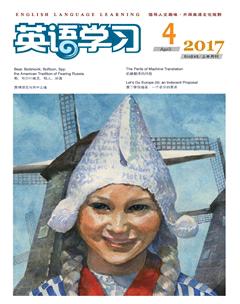中华文化术语选篇
“中华思想文化术语”,是浓缩了中华哲学思想、人文精神、价值观念等的以词或短语形式固化的概念和文化核心词。它们是中华民族几千年来对自然与社会进行探索和理性思索的成果,积淀着中华民族最深沉的历史智慧。本文选登“中华文化术语”诠译和英文翻译,使中国人更加理解中国古代哲学思想,也使世界更加了解中华思想文化。
虚静
Void and Peace
排除一切欲望与理性思维的干扰,达到心灵的纯净与安宁。由道家老庄最先提出,荀子也用它说明专心致志所达到的一种精神状态。由于这种心境与文艺审美中无物无我、无知无欲的心理特性相通,因此,古代思想家与文艺批评家也用“虚静”来说明文艺活动中的审美心理。这一术语强调文艺创作中的心灵自由,认为它是达到审美最高境界的重要前提。
Void and peace mean that all distractions, such as desires and rational thoughts, should be dispelled to attain peace and purity of the soul. The idea of void and peace was first proposed by Laozi and Zhuangzi, the founders of Daoism, and then used by Xunzi to refer to a state of mental concentration. Such a state of mind is similar to the psychological conditions in appreciation of works of literature and art, which are characterized by being totally free from the awareness of oneself and the outside world, and free from any urge and desire. Therefore, thinkers and literary critics of earlier times used this term to explain the state of mind in literary and artistic creation and appreciation. It stressed the need for spiritual freedom in artistic creation, suggesting that this is an important precondition for reaching the highest level of aesthetic appreciation.
引例 Citations:
◎致虚极,守静笃。(《老子·十六章》)
(达到虚空境界,心中没有任何杂念;坚守安宁心境,不受外物干扰。)
When one attains the state of void and peace, his mind becomes peaceful and free of any distractions. He can withstand the temptations of the outside world.(Laozi)
(因此构思文章,最重要的是虚静,不受外物干扰,身体舒泰如同五脏贯通了一样,精神洁净如同洗洁过一样。)
In conceiving an essay, one should strive for a mental state of quiet emptiness and not let oneself be bothered by external interferences, and be relaxed and at ease just like all his internal organs are put in perfect comfort and his spirits refreshed by a thorough wash. (Liu Xie: The Literary Mind and the Carving of Dragons).
玄览
Xuanlan ( Pure-minded Contemplation )
原指在深远虚净的心境下览知万物,是老子提出的认识“道”的一种方法。老子认为,只有摒弃一切杂念与成见,保持内心明澈如镜,才能静观万物,从而认识“道”,体会其精要。后世文艺评论家因为“玄览”所主张的心境与文艺创作及鉴赏所要求的审美心境相契合,遂用为文艺思想的重要术语,以说明文艺创作与鉴赏时应具有的超越一切欲望与功利的特殊心境。
This term was first used by Laozi as a way to understand Dao. He believed that one cannot understand Dao by calmly observing everything unless one abandons all distracting thoughts and biases, and keeps ones mind as clear as a mirror. Later literary critics believed that the state of mind as required for xuanlan has similarities with the state of mind required for literary writing and appreciation, thus they made it an important term to mean ones state of mind must transcend all desires and personal gains in literary writing and appreciation.
引例 Citations:
◎滌除玄览,能无疵乎?(《老子·十章》)
(涤除一切杂念,在深远虚静的心境下观照一切,就没有瑕疵了吗?)
Is it for sure that there will be no flaws when one cleanses away all distracting thoughts and watches the world with a clear, peaceful mind? (Laozi)
◎伫中区以玄览,颐情志于典坟。(陆机《文赋》)
(久立于天地间以深远虚静的心境观照一切,在典籍的阅读中颐养性情、培养志向。)
Standing between heaven and earth and watching the world with a clear, peaceful mind, the writer enriches and improves himself through reading great works of the past. (Lu Ji: The Art of Writing)

